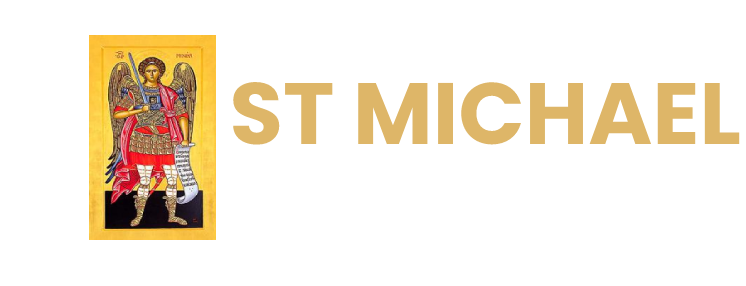Sermon -The Feast of the Dormition 2022
Pastoral Sermon
V. Rev. Timothy Baclig
The Feast of the Dormition of the Holy Theotokos
August 15, 2021
We who are of the Catholic Tradition are often questioned about why so much attention is given to the veneration of the Virgin Mother of God? So my purpose today is to help us to be sure that we get this right.
Our devotion to Mary and her virtuous life is rooted in what we know and believe about the maternal role of a woman. In the case of the Holy Virgin, this role not only pertains to her giving birth to the Son of God, but her voluntary obedience and purity of heart, mind and soul—something that we aspire to, whether we be a Christian committed to Christ as man or a woman.
In other words: The Feast of the Dormition is the celebration of the fact that all of us who are in Christ—who are the recipients of His Divine Grace (His Spirit) are “highly exalted” through all that Christ has accomplished for us; and that this exaltation is clearly revealed in the life of Mary, the Mother of our Lord.
All that we hear sung about her, is at the same time everything that we are called to be. It pertains to our destiny, just as she, by her obedience, paved the way for us and is at the forefront of intercessors. We are reminded of this each time we verbalize the magnificent Biblical hymn, My soul magnifies the the Lord and my spirit rejoices in God my savior; for He has done great things for me and Holy is His name…
One of the clearest passages of scripture that similarly describes this virtue is heard in what St. Paul writes to the Philippians:
“…have this mind among yourselves, which is yours in Christ Jesus,
Who, though He was in the form of God, did not count equality with
God something to be grasped, but emptied Himself, taking on the form
of a servant, being born in the likeness of men…
You and I may have some difficulty with the expression of “emptying oneself.” We don’t like the concept. It tends to make us to think that we are “nobody.” Nothing should be further than the truth. In fact, if there is one thing that the Feasts of the Holy Virgin should help us with, is to be “comfortable in our own skin.”
This is is not a novel concept it is the basis of our Christian calling and witness and will be the focus of the Gospel lesson that will be heard in the upcoming the Feast of the Holy Cross when we will be reminded that: if we want to follow Christ and be a Christian disciple, it involves: divesting ourselves, or what the Gospel describes as “denying ourselves;” putting aside our own selfish ambitions, to follow Christ.
The remarkable surprise that a person discovers by doing this is: a freedom from being bound to false images and disingenuous identities (what the Bible calls: idolatry). Instead, to “deny oneself” ironically means to discover our true humanity—not as a something “bad” or “evil” but as God created us to be: good (as He declared Man in Genesis). And this is precisely the reason why, Mary, the Birth-giver of Christ is presented us today, as she is in all of her Feasts, as the model of true humanity. She is what it means to be truly human, whereby one’s life is discovered and known as uniquely personal, in being united with God.
Second, to “empty oneself” is to willingly responding to the call of “taking up our Cross.” This is the most challenging decision any person can make: to committing oneself to Christ; a willingness—but not as a one-time decision, but a series of daily choices that leads to the third point, which is: following Christ. Here, the role and model of the saints, of which the Holy Virgin is at the forefront, provides us with the concrete examples of “how it is done.” Their lives demonstrate it.
Finally, the Feast of the Dormition is also the celebration that Mary’s fate is our destiny; a destiny of: all who are of “low estate” (Luke 1:48), “whose souls magnify the Lord” (1:46), “whose spirits rejoice in God our Savior” (1:47), and whose lives are totally dedicated to hear the Word of God and keeping it (11:28).
In others words: In the Feast of the Dormition (as with all of the Feasts that honor the Virgin Mother) are the feasts that celebrate facts of our own lives in Christ and the Holy Spirit. The Holy Virgin Mary is the perfect human example for us in life. By sharing in her life, and by her intercessions, we see and realize the eternal glory of God which is to come at the end of our own lives.
Our celebration and veneration of the Holy Virgin, is therefore, is our belief that: what happens to Mary happens to all of us who imitate her life of humility, obedience and love.



